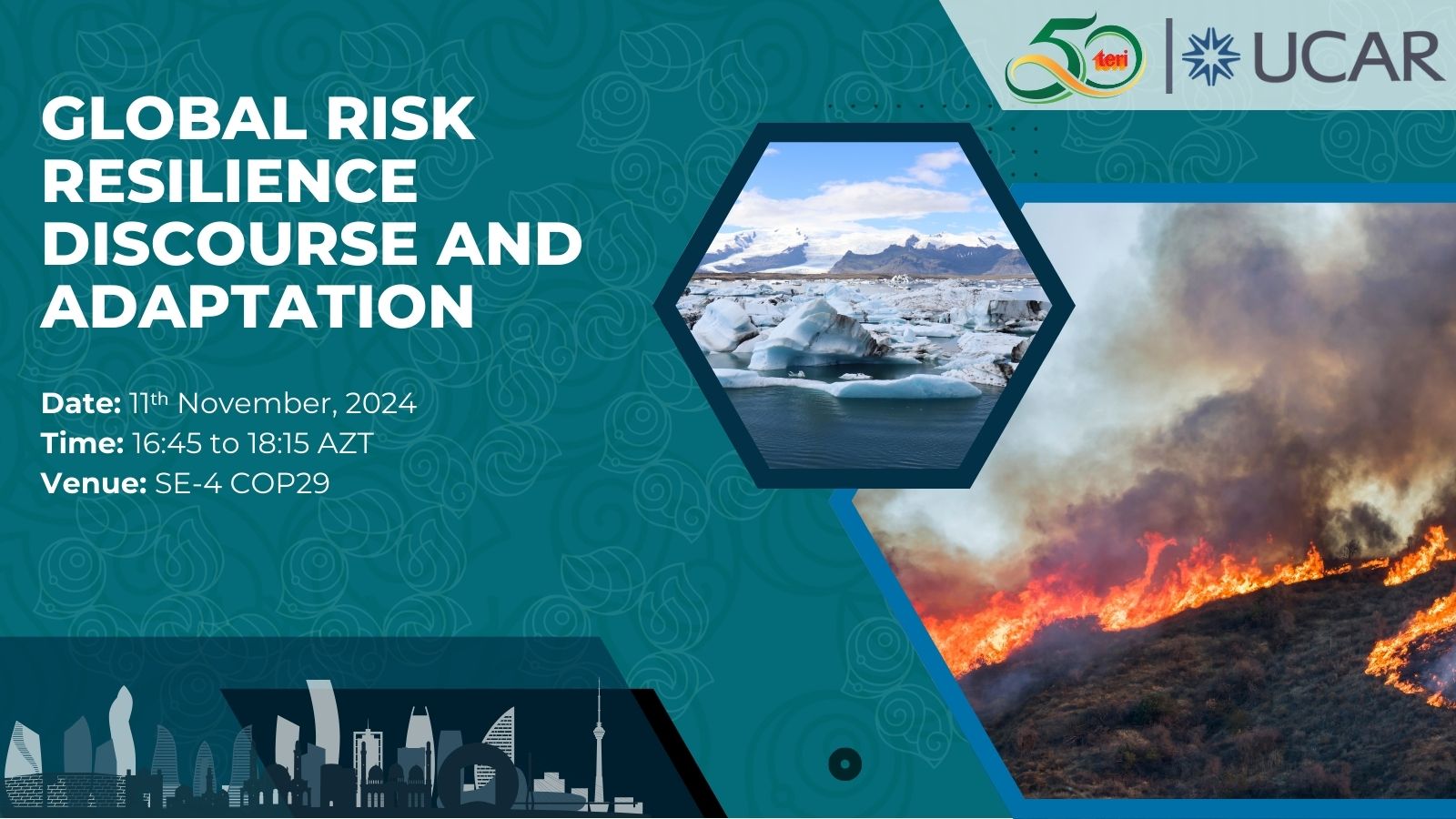Global Risk Resilience Discourse and Adaptation

The need to focus on adaptation, particularly in the next few decades, in defining any long-term climate action is urgent. The Establishment of a Global Goal on Adaptation (GGA) through Article 7.1 of the Paris Agreement in 2015 marked both recognition of the importance of adaptation and its inclusion in the global climate governance by giving adaptation its due structural and procedural space within the UNFCCC process.
The GGA aims to establish a clear framework and specific targets to guide global adaptation efforts boosting support for adaptation in developing countries. So far, a two-level governance approach for the GGA has emerged. The first level follows a country-driven approach to substantive adaptation interventions focused on national-level processes, whereas the second level is structured around the Global Stocktake (GST) process of the scientific and policy aspects of progress on adaptation.
The UAE Framework for Global Climate Resilience has identified 8 thematic focus areas for adaptation action: Water Security, Food Security, Health Resilience, Ecosystem Protection, Infrastructure Resilience, Livelihood Protection, and Cultural Heritage. These need to be further elaborated on four implementation dimensions: Impact, vulnerability and risk assessment, Planning, Implementation, and Monitoring, evaluation and learning (MEL). A two-year UAE-Belém work program to develop indicators for tracking progress toward these targets has also been established.
While this progress on the content and structure of the GGA is important, there are still issues to be resolved. This side event brings together scientists and policy makers/policy researchers to reflect on the adequacy of the scope and strategies as it has emerged from the negotiation process and explore the ways in which the GGA can be truly global in its ambition. In particular, it explores the ways in which scientific foundation for adaptation planning, the scope and scale of adaptation finance, and integration of various global governance mechanisms could deepen and enhance climate resilience across various scales of governance: local, national, and global.
